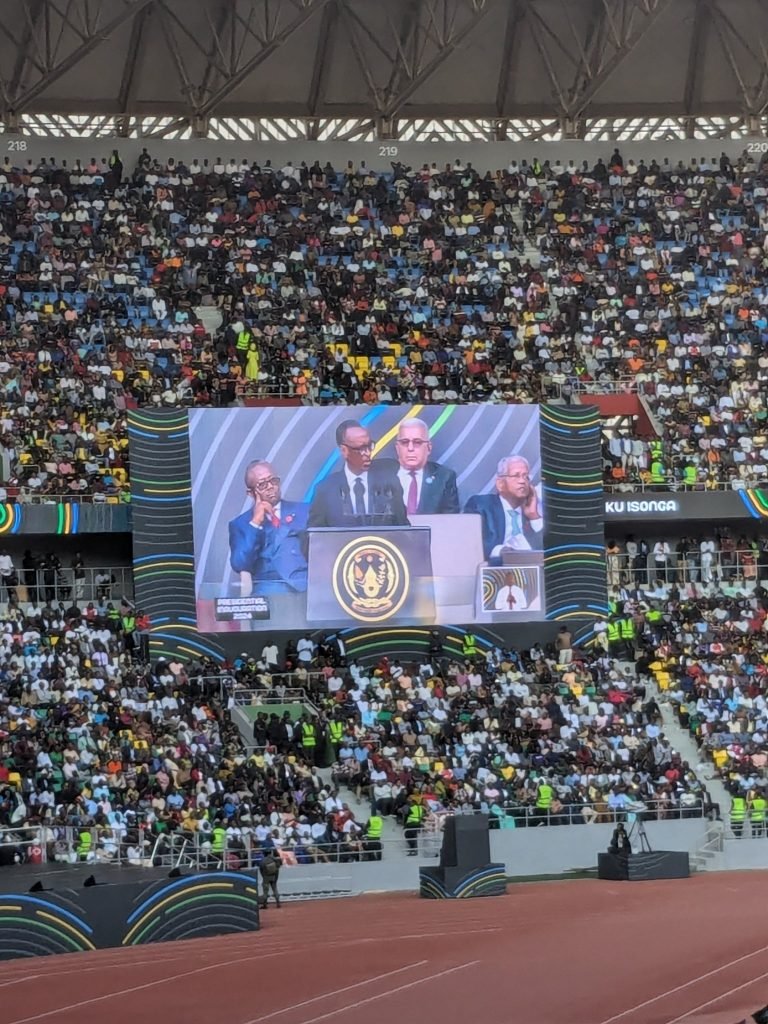Rwandan President Paul Kagame was inaugurated for his fourth term on Sunday after securing a landslide victory in last month’s elections, with over 99% of the vote.
The inauguration ceremony, held in Kigali’s 45,000-seat stadium, was attended by several dozen African heads of state and dignitaries, who gathered to witness Kagame take the oath of office before Chief Justice Faustin Ntezilyayo.
In his oath, Kagame vowed to “preserve peace and national sovereignty, and consolidate national unity.”

Kagame’s re-election on July 15 was widely anticipated, given his iron grip on the nation since the 1994 genocide.
According to the National Electoral Commission, he won 99.18% of the votes, securing another five years in power.

However, rights activists criticized the election, citing a lack of genuine democratic processes in Rwanda. Only two candidates were permitted to run against Kagame out of eight applicants, with several of his prominent critics barred from the race.
Frank Habineza of the Democratic Green Party garnered just 0.5% of the vote, while independent candidate Philippe Mpayimana received 0.32%.

Kagame is hailed by many for his role in rebuilding Rwanda after the genocide, during which Hutu extremists massacred around 800,000 people, primarily Tutsis and moderate Hutus.
Under his leadership, Rwanda has become known for its remarkable recovery and economic progress. Yet, his government is also accused of ruling through fear, with reports of intimidation, arbitrary detentions, killings, and enforced disappearances of political opponents.
Beyond Rwanda’s borders, Kagame’s government faces accusations of fueling instability in the neighboring Democratic Republic of Congo (DRC).
Angola’s President Joao Lourenco, who attended the inauguration, was expected to engage in private discussions with Kagame regarding a ceasefire agreement in the DRC. The agreement, brokered by Luanda, followed a meeting between the foreign ministers of Rwanda and the DRC, which accuses Rwanda of supporting the M23 rebel group. However, despite the ceasefire’s scheduled start on August 4, M23 rebels captured a town on the border with Uganda.
For many Rwandans, particularly the younger generation, Kagame is the only leader they have ever known. Among the tens of thousands who attended the inauguration was 27-year-old trader Tania Iriza, who expressed her pride in Kagame’s leadership. “Under his leadership, Rwanda has risen from our tragic past and forged a path towards prosperity, unity, and innovation,” she said.
Kagame has won every presidential election he has contested, each time with more than 93% of the vote. In 2015, he oversaw controversial constitutional changes that shortened presidential terms but reset the clock for his presidency, allowing him to potentially remain in power until 2034.









